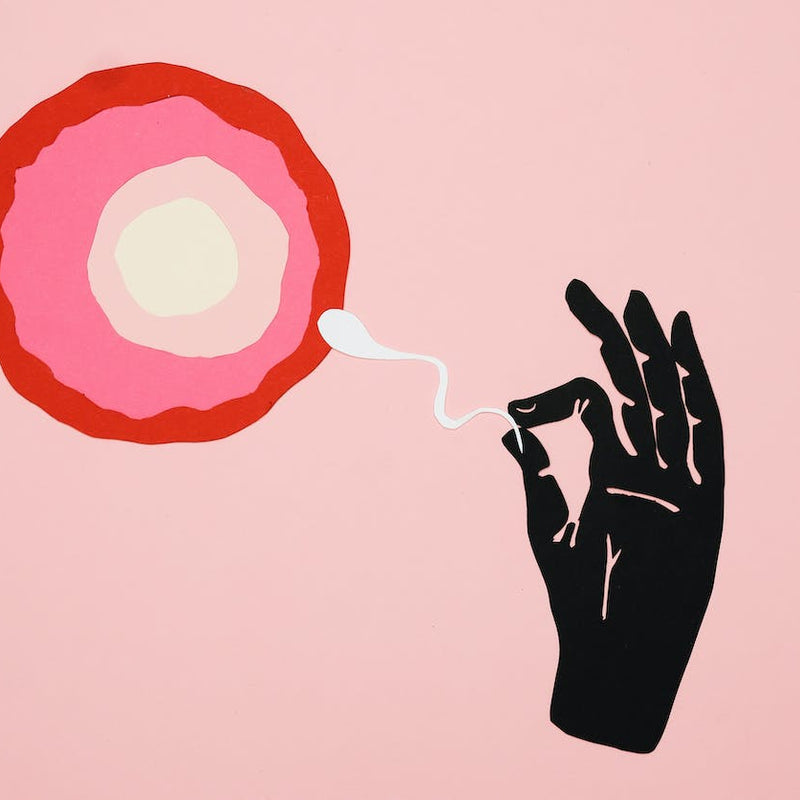Sex and Conception Q&A with Dr. Gleaton

Every month, Dr. Gleaton answers all your questions about fertility, pregnancy, birth and more. Follow us on Instagram to ask your questions!
How can you tell if sperm/semen made it “in”? I feel like everything comes out.
Short answer is, you can’t. Sperm and semen are deposited during sex very close to the cervix. Some of the sperm immediately begin swimming to the egg, while the remainder and other liquids in semen may exit out the vagina. Some people like to elevate their pelvis 5-10 minutes after intercourse to increase the chances of sperm making reaching the uterine cavity, but this method has not shown to significantly increase pregnancy rates.
Should I have sex every other day or every day during the fertile window when TTC?
Sex every other day or every day during fertile window when TTC? Every day when possible. Studies show that semen parameters, including quantity and quality, does not differ dramatically when comparing sex every day to every other day. If every day isn’t possible throughout the entire 5 day fertile window, definitely focus on sex 1-2x/day once LH surge detected by using ovulation tests.
Studies show that semen parameters, including quantity and quality, does not differ dramatically when comparing sex every day to every other day.
Does having sex everyday of ovulation help chances of conceiving? Or too much?
Is there a such thing as too much sex? Clearly it depends on who you ask 😉
Historically, studies suggested that having too much sex during ovulation could impair sperm quality/quantity and couples should limit sex to every other day. NEWS FLASH: that recommendation has changed since most studies indicate sperm parameters remain the same with frequent intercourse. Most providers agree that sex everyday during ovulation window is not harmful.
How can you find out what’s blocking your Fallopian tube and what are treatment options?
Great question! Without surgically viewing the tube, there are limited ways to tell what's actually blocking the tube. Typically HSGs only tell you whether the tube is blocked.
In general most tubal blockages result from scarring aka adhesions. This can develop with endometriosis, pelvic infections, prior ectopic pregnancies or extensive surgeries.
Is it possible to improve your partner’s sperm production?
Your sperm’s health and your own health have a lot in common. I recommend that your partner do the following activities to help increase sperm production and overall health:
- Eat balanced diet
- Get plenty of sleep
- Exercise regularly
- Avoid too much stress
- Avoid excessive alcohol and drug use
- Don’t smoke cigarettes
Additionally, it is also recommended that your partner avoid medications associated with (temporary) reduction of sperm count, including some antibiotics, anabolic steroids, testosterone, and narcotics like oxycodone and methadone. As always, talk to your doctor about options if you have questions about avoiding any of those.
And finally, it may be beneficial to consider taking vitamins and supplements. Check out our Prenatal for him, which was formulated by a urologist to improve sperm health.
Should I worry about my fertility after having chlamydia?
Although chlamydia is a known cause of infertility, most cases that are adequately treated do not advance to pelvic inflammatory disease and thus less likely to impair fertility.
Best long term birth control if Mirena made you break out and have trouble remembering a pill?
There are many reasons for acne and breakouts. Discuss with your provider whether mirena was the true culprit. If so, consider a different iud that’s nonhormonal.
Vaginal dryness and pain while breastfeeding with sex?
Vaginal dryness during breastfeeding can lead to discomfort during sex. This is common due to low estrogen levels. Treatment options include vaginal lubricants (our Lube is pregnancy fertility and pregnancy safe!) and vaginal estrogen.
Is coconut oil a sperm-friendly lubricant?
Fertility-friendly lubricants are a special class of lubricants that are cleared by the FDA for use when trying to conceive. They go through additional tests (biocompatibility testing) to demonstrate that they do not harm sperm, eggs, or embryos. If you are trying to get pregnant, I would suggest finding a lube brand that is FDA-cleared for fertility (like the Lube!)
Reach Out, We're Here
Have questions about your order or products? For the speediest answer, check out our FAQ section. Need something else? Come find us below.
Please keep in mind our regular business hours; Monday-Friday, 9am-5pm CT.
Customer Support
support@natalist.com
Press Inquiries
media@everlyhealth.com
Business & Partnerships
team@natalist.com
Affiliates + Influencers
team@natalist.com
Job Openings
Careers Page























